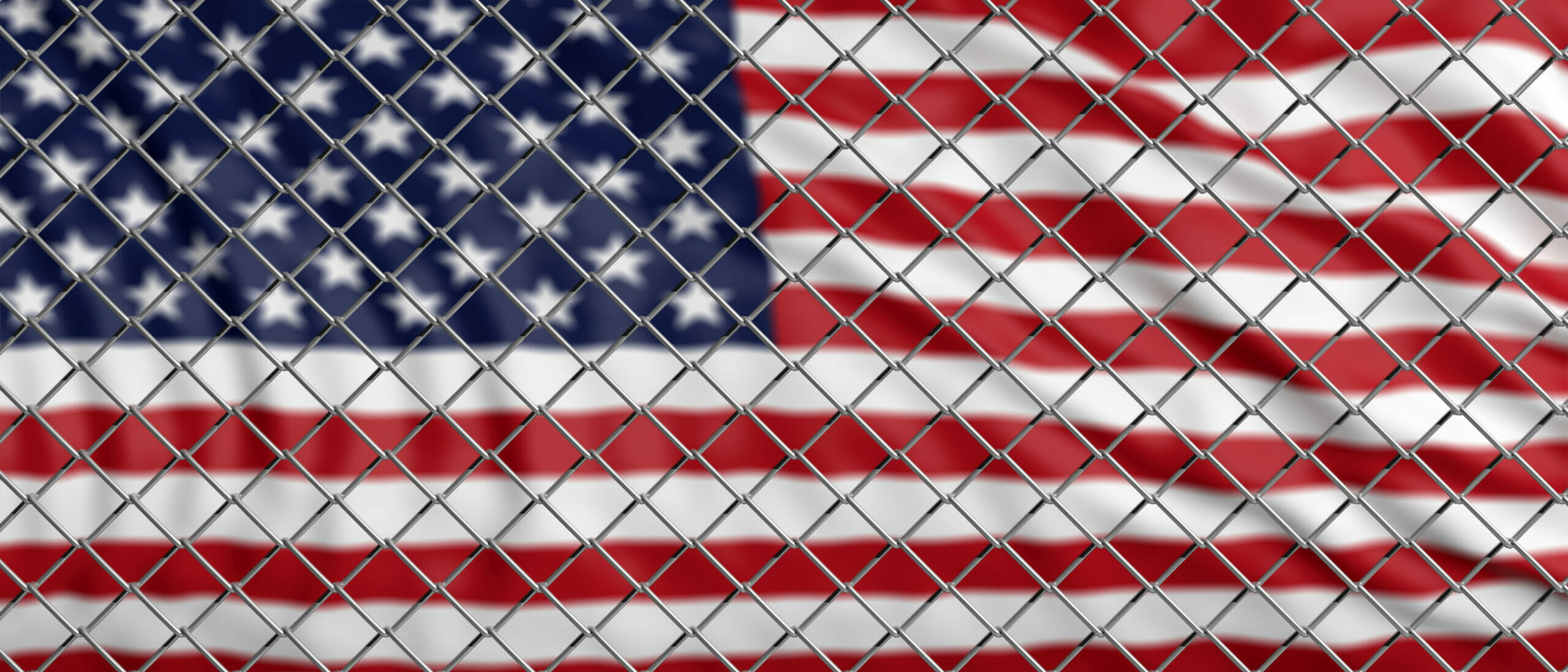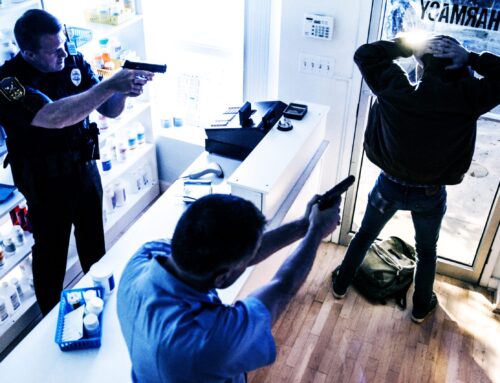Where Do Americans Stand on Criminal Justice Reform?

A cursory Google search for “criminal justice reform” will yield millions of results, with the first page of Google showcasing dozens of criminal justice reform groups, non-profits, legal action coalitions, and think tanks. Across all fifty states and within every political affiliation, millions of Americans are expressing their concerns that today’s criminal justice system is archaic, ineffective, excessively punitive, and incapable of producing real reform, rehabilitation, and lasting results in those it incarcerates.
Poll Data Shows Americans Want Criminal Justice Reform
In 2020, the Associated Press polled Americans about criminal justice with help from the National Opinion Research Center. Even as researchers expected a shift in public opinion toward supporting criminal justice reform, the results were still surprising.1
According to the poll data, 95% of American adults say the criminal justice system needs to be changed. More specifically, 29% said the system needed a complete overhaul, 40% said it needed major changes, 25% said it needed minor changes, and only 5% said it needed no changes.
Even when the polling data was sorted among race and political affiliation, the results did not change much. Quoting the researchers, “Americans across party lines are nearly unanimous in thinking at least some change is necessary.” Results only differed in the degree to which Americans believed changes were required.
The poll data also dug into what aspects of criminal justice reform Americans thought needed to be implemented. To name a few subjects polled:

88% of Americans support using police body cameras, compared to 7% who have no opinion and 5% who oppose their use.
86% of Americans support establishing clear standards for using force in all police and law enforcement interactions with the public, 9% say they’re indifferent, and 5% are opposed.
46% of Americans, a plurality, support refocusing police efforts away from low-level offenses (like non-violent drug possession) and directing police to more serious crimes. About 27% of Americans are indifferent to this, and 25% are opposed.
Another poll found similar results, mainly that Americans overwhelmingly support reforms in how the U.S. approaches crime and incarceration. According to polling by the American Civil Liberties Union Campaign for Smart Justice, about 91% of the American population supports criminal justice reform. Some of the results from that poll include:2
Perhaps most notably, 71% of individuals polled said it was important to reduce the prison population in America, including 87% of Democrats, 67% of Independents, and 57% of Republicans.
Two out of every three Americans would be more likely to vote for an elected official if that candidate supported reducing the prison population and using the savings to re-invest in drug treatment and mental health programs for those who need them.
About 72% of Americans polled said they’d be more likely to support a candidate if that candidate voted to eliminate mandatory minimum incarceration laws.
“Sending someone to prison for a long sentence increases the chances that he or she will commit another crime when they get out because prison doesn’t do a good job of rehabilitating problems like drug addiction and mental illness.”
Approximately 71% of Americans agree with this statement: “Sending someone to prison for a long sentence increases the chances that he or she will commit another crime when they get out because prison doesn’t do a good job of rehabilitating problems like drug addiction and mental illness.”
The poll data showed 61% of Americans believe that “People who suffer from drug addiction and commit serious crimes don’t belong in prison but should be in rehabilitation programs where they can receive treatment.”
Finally, the survey found that most Americans believe there is a racial bias in the U.S. criminal justice system, with just one in three believing that black Americans are treated fairly in the criminal justice system.
Though the two surveys cited above represent just a sliver of the voluminous polling data and available public opinion information, they clearly show how Americans feel about the need to reform U.S. criminal justice institutions, policing, punishment, and reform.
The Need for Criminal Justice Reform Is a Bipartisan Issue
A second Google search into the types of groups advocating for criminal justice reform will reveal something quite interesting. The groups come from vastly different backgrounds, advocating for criminal justice reform from conservative and liberal stances.
For example, the Right on Crime Campaign is a Texas-based public policy foundation dedicated to restoring Constitutional values into criminal justice and sentencing. Quoting the group on its stance regarding free enterprise and the excessive growth of crimes, “The Constitution lists only three federal crimes, but the number of statutory federal crimes has now swelled to around 4,500. This is to say nothing of the thousands of bizarre state-level crimes, such as the 11 felonies in Texas related to the harvesting of oysters. The explosion of non-traditional criminal laws grows government and undermines economic freedom. Criminal law should be reserved for conduct that is blameworthy or threatens public safety, not wielded to regulate non-fraudulent economic activity involving legal products.” That quote is a good example of the group’s overall approach, i.e., promoting freedom and civil rights for Americans and only incarcerating when necessary.3

For another example, the Brennan Center for Justice also advocates for criminal justice reform, but moreso from the stance of supporting racial equality and providing equal opportunity for all Americans. Quoting one of their passages, “The United States’ criminal justice system is broken. We have less than 5 percent of the world’s population but nearly 25 percent of its prisoners. Mass incarceration has crushing consequences: racial, social, and economic. It reinforces systemic patterns of racial inequity across our society, with vastly unequal treatment at every step. And it is not necessary to keep our communities safe.” This group tirelessly advocates for compassion and actual rehabilitation to be at the forefront of U.S. federal and state efforts to tackle crime.4
“The United States’ criminal justice system is broken. We have less than 5 percent of the world’s population but nearly 25 percent of its prisoners…”
Though the above groups may approach criminal justice reform from different backgrounds, both groups want the same thing: a more effective and efficient criminal justice system that does not overly criminalize American life and does not overly incarcerate the American people.
Putting Education and Real Solutions at the Forefront of American Criminal Justice
While some two million Americans are currently incarcerated and millions more have some connection with the criminal justice system, America’s failings in its justice system affect more than just those incarcerated, on parole, or probation. About 2.7 million children live with at least one parent behind bars.5
Even when incarcerated Americans are released, thousands of legal barriers block job opportunities and educational advancement, which is part of why 77% of formerly incarcerated individuals end up in prison again. When no options are available, they often feel that returning to crime is the only way to get by.
U.S. criminal justice systems would benefit from implementing educational programs that truly seek to help inmates get to the root of what caused them to commit crimes in the first place. Such programs should be utilized wherever possible to give offenders the tools they need to create productive, responsible, crime-free lives. Implementing results-based and proven educational programs in prisons would be one step toward reforming the U.S. criminal justice system.
Sources:
- A.P. “AP-NORC Poll: Nearly All In U.S. Back Criminal Justice Reform.” Associated Press, 2020. apnews.com
- ACLU. “91 Percent of Americans Support Criminal Justice Reform, ACLU Polling Finds.” American Civil Liberties Union, 2017. aclu.org
- ROC. “Case for Reform.” Right on Crime, 2023. rightoncrime.com
- BCJ. “A Federal Agenda for Criminal Justice Reform.” Brennan Center for Justice, 2021. brennancenter.org
- S.T. “Criminal Justice Focus Issues.” Stand Together, 2023. standtogether.org




